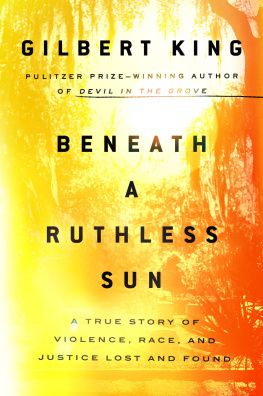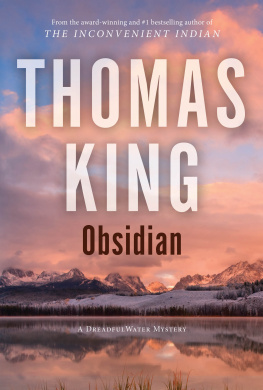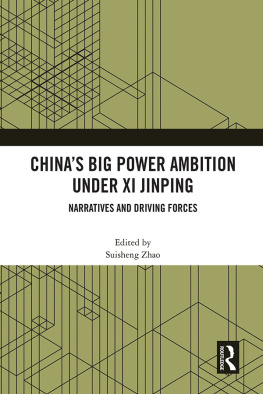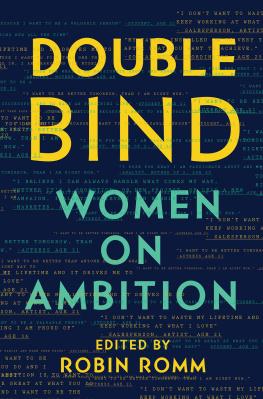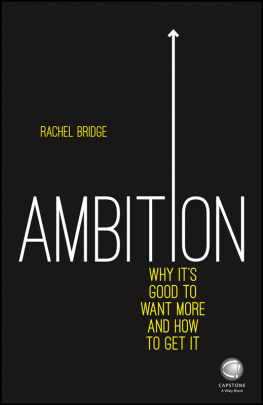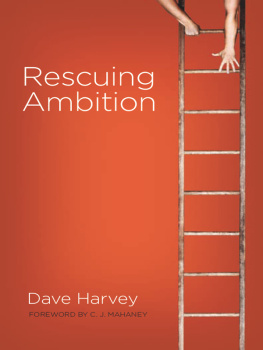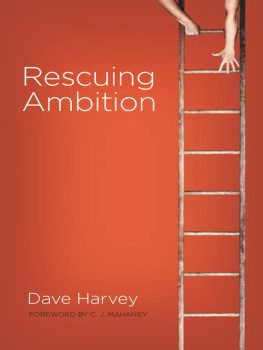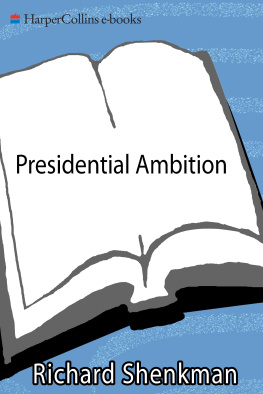ACKNOWLEDGMENTS
First, I would like to thank the Beinecke Library and Samuel Botwinik family for their generous fellowships. Anything I would have written on ambition would have suffered had it not been for their support, as well as the more general support of Yale University. Of course, I must thank Chris Rogers, Christina Tucker, and Laura Jones Dooley at Yale University Press for their support, encouragement, and editorial acumen.
So many people both at Yale and elsewhere have helped along the way. I have tried to thank them all here but apologize to anyone I might have forgotten on my path to completion. Robert Stepto has been supportive of my endeavors, recognizing the arbitrary nature of the line between the creative and the academic. Stuart Schwartz helped me understand that early America isnt restricted to the New England town and challenged me to integrate Latin America into my study of North America. John Demos helped me find history in unexpected places and to appreciate the wonder of the seventeenth century. Paul Gilroy supported my study of ambition and turned me on to Christopher Hill. Jon Butler allowed me to explore the Geneva Bible in a seminar setting. John Stauffer was an unwavering mentor and generous friend at Yale as a graduate student and even later when he began to wear a tie every day. Steve Mintz encouraged me at various steps along my way and invited me to present a paper at a conference in honor of David Brion Davis. He later published my essay among a collection of tenured faculty contributions. Robert Johnston thought that what I did mattered and organized softball games. David Waldstreicher afforded me more time than he had. Jean-Christophe Agnew read drafts of my prospectus and meaningfully critiqued early drafts of an article on ambition. Daniel Walker Howe helped me better understand Federalist No. 51 during his semester at Yale. The late Frank Turner helped me appreciate watersheds in the history of science. Gerald Jaynes advocated on my behalf and soothed me by cell phone when all seemed lost. Stephen Parks helped me love the Beinecke and appreciate its many gifts, including the magnificent Osborne Collection. Walter Jackson Bate agreed to work with me individually while I was an undergraduate. Edward Bellamy Partridge taught me to love drama to 1642, and J. L. Simmons taught me to love Shakespeare. Troy Paddock gave me pep talks and practical advice. Peter Peduzzi and Jim Dziura at the Yale Center for Analytical Sciences believed that it mattered even though it seemed far afield. I also want to thank Chris Killheffer for making me feel that Sterling was still home; Yvette Barnard for her wisdom and love; Janet Giarratano, who is among the most supportive, hardest working departmental administrators I have ever met; John and Geneva for picking me off the ground and dusting me off; Henry Schwab for the quality of being schwaby; Robert Stone, who helped me learn to write; Keith Wrightson for making me more fully interrogate regicide; Mike Kane for his friendship, camaraderie and constant reminders that real artists ship; Bob Vivona for his thirty years of most excellence; Atticus and Caleb for running around the towers of books in my office, and learning to love history and literature and music, and respecting and wondering at things that many children dont even notice; Margaret King for instilling Kiplings IF into my fabric; and finally Leslie Poirier King for counseling patience and protecting me from the realities of the quotidian long enough to breathe and think.
1
From Vice to Christian Sin
The story is told of an exchange between the legendary economic historian Jack Fisher and an importunate pupil who was pressing him for a reading list on sixteenth-and seventeenth-century English economic history. [Fisher] said, If you really want to understand the period, go away and read the Bible.
Christopher Hill, The English Bible and the Seventeenth-Century Revolution
[God] reprocheth Adams miserie, whereinto he was fallen by ambition.
Genesis 3:22, Geneva Bible, marginal note
For eminent archaeologist and historian Nancy Sandars, Gilgamesh embodies our modern conception of ambition. But reading modern notions of ambition into ancient endeavors is a risky business and should be resisted to avoid the pitfalls of reifying the concept.
The ground in ancient Greece might seem steadier, as many sources on ambition in this period were those read and studied in Anglo-America.
Robert Faulkner, in his work on noble ambition, considers Alcibiades as a Greek example of unbounded ambition.
The problem is that there is no one Greek word for ambition. Rather, three Greek words have been translated into our English word ambition. Just as historians must accept the change in the meanings of words through time, so they must not fall prey to assuming a stasis in translations of ancient concepts into contemporary parlance.
The three Greek words that have been translated into the English word ambition are: philotimia (alternatively philotimeomai), literally the love of honor; eritheia, rivalry or strife; and philodoxia, love of acclaim.
Philotimia, love of honor, was a central theme in Greek life and culture. It was widely considered to be among the driving forces of Greek achievement, and therefore conveys much of the contemporary sense of ambition. One wonders if part of ambitions later duality might have been informed by a similar change through time in ancient Greece. Or, perhaps, as Greek culture became more fluid, a demos (the people) spurred by philotimia like-wise became more accepted.
The second word often translated into ambition is philodoxia, love of acclaim. In Plutarch, Alcibiades is characterized by both philotimia and philodoxia.
The third word, eritheia, rivalry or strife, is also translated into English as ambition or selfish ambition. The New International Version of the Bible, for example, defines eritheia as selfish ambition. Strongs concordance defines eritheia as rivalry, hence ambition, and the seeking of followers and adherents by means of gifts, the seeking of followers, hence ambition, rivalry, self-seeking; a feud, faction.
In Aristotle, eritheia denotes a self-seeking pursuit of political office by unfair means. Yet perhaps a third possibility, not ventured in the literature, is the source.
We know that there had been a momentous change in ancient Greece during the eighth, seventh, and sixth centuries. During this period a popular movement of demiourgoi (craftsmen) and thetes (literally, doers) arose to form a new order and garner political power. These democrats demanded political recognition and reform, challenging the aristocrats. As people of humble origins vied for political power, upheaval, rivalry, and strife ensued. The rise of the common laborer was seen as the origin of rivalry and strife.
The Latin origins of the English word are decidedly less mysterious. Ambitio was originally used to describe Roman candidates for office who would canvass or solicit votes. There were no dictionaries of Latin usage per se during the Roman Empire. Modern Latin dictionaries look back and attempt to reconstitute meaning based on usage. For our purposes, this is extremely helpful in mitigating the risk of confusing linguistic similarity with conceptual similarity. It is not just the word. It is a concept reflected by the word.
Ambitio is used by the Romans almost exclusively for those with a public life.culture was preoccupied with the Romans, Latin usage is informative. At any rate ambitio is defined as in The Oxford Latin Dictionary






